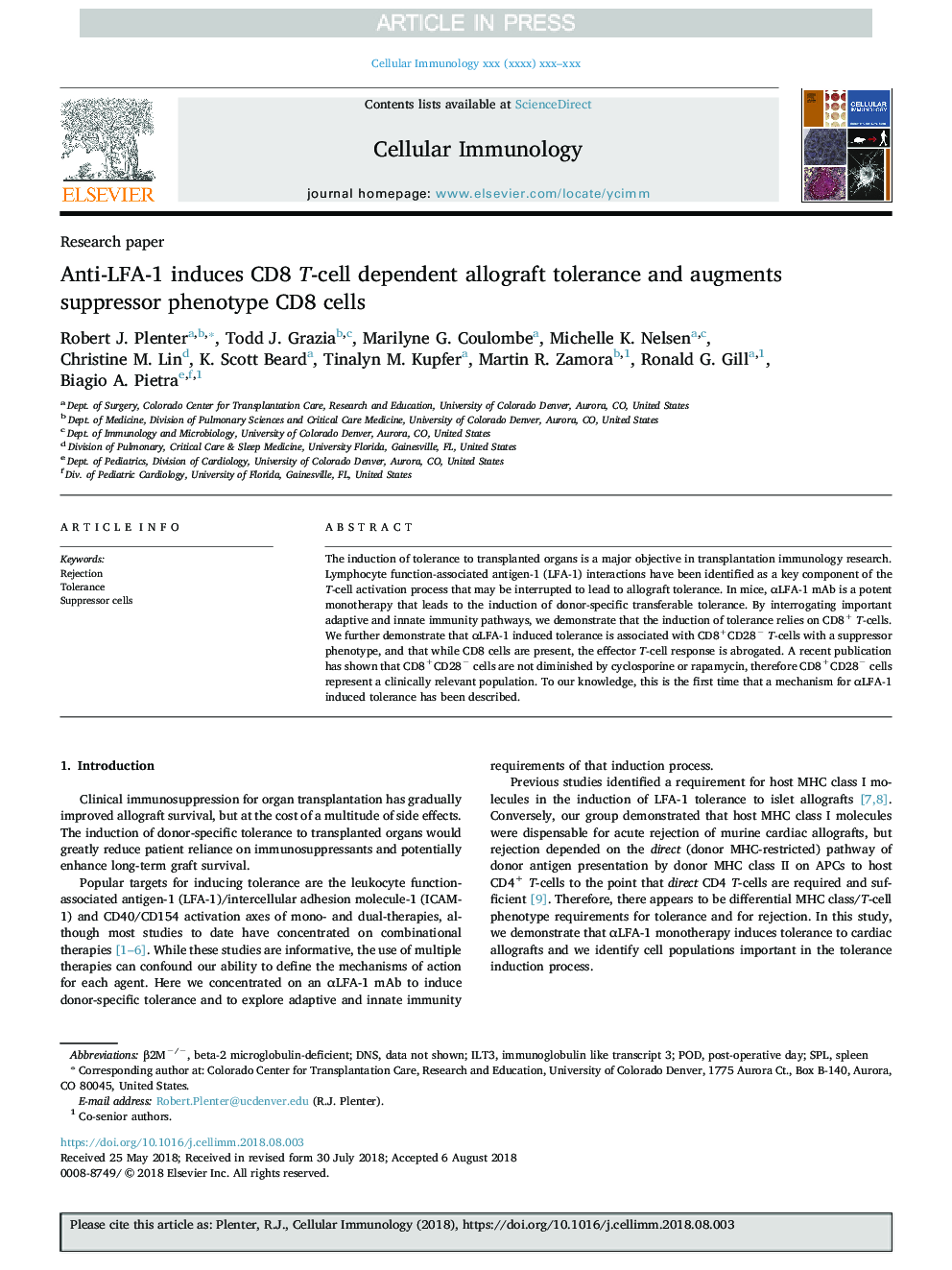| Article ID | Journal | Published Year | Pages | File Type |
|---|---|---|---|---|
| 8962234 | Cellular Immunology | 2018 | 10 Pages |
Abstract
The induction of tolerance to transplanted organs is a major objective in transplantation immunology research. Lymphocyte function-associated antigen-1 (LFA-1) interactions have been identified as a key component of the T-cell activation process that may be interrupted to lead to allograft tolerance. In mice, αLFA-1 mAb is a potent monotherapy that leads to the induction of donor-specific transferable tolerance. By interrogating important adaptive and innate immunity pathways, we demonstrate that the induction of tolerance relies on CD8+T-cells. We further demonstrate that αLFA-1 induced tolerance is associated with CD8+CD28âT-cells with a suppressor phenotype, and that while CD8 cells are present, the effector T-cell response is abrogated. A recent publication has shown that CD8+CD28â cells are not diminished by cyclosporine or rapamycin, therefore CD8+CD28â cells represent a clinically relevant population. To our knowledge, this is the first time that a mechanism for αLFA-1 induced tolerance has been described.
Related Topics
Life Sciences
Biochemistry, Genetics and Molecular Biology
Cell Biology
Authors
Robert J. Plenter, Todd J. Grazia, Marilyne G. Coulombe, Michelle K. Nelsen, Christine M. Lin, K. Scott Beard, Tinalyn M. Kupfer, Martin R. Zamora, Ronald G. Gill, Biagio A. Pietra,
